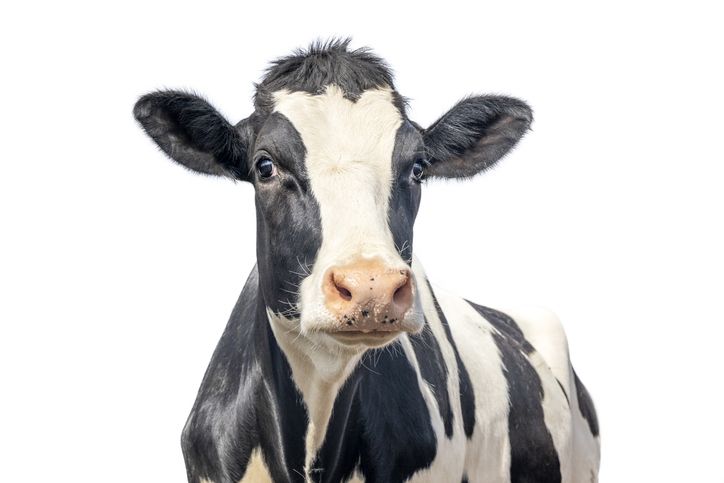Perfect Day—a pioneer in the ‘animal-free’ dairy space making whey protein via precision fermentation—has been sued by its Italian contract manufacturing partner Olon for breach of contract, fraudulent inducement, and fraudulent concealment.
The company declined to comment on a complaint* filed in New York on Friday, which accuses it of stringing Olon along while it “secretly planned” to switch production of beta-lactoglobulin (BLG) to cheaper fermentation facilities in India.
According to the complaint, Olon spent six years working with Perfect Day on producing BLG via microbial fermentation, signing a contract under which Olon pumped over €81 million ($86 million) into “expanding and tailoring its manufacturing capabilities to Perfect Day’s unique specifications.”
This would in turn enable Olon to “earn substantial revenues by producing the vast quantities of beta-lactoglobulin [a whey protein] needed to meet Perfect Day’s anticipated global supply chain needs.”
However, the parties’ working relationship “came to a screeching halt in August 2023” when Perfect Day stopped paying its bills, claims Olon. In September, it claims, it was “flabbergasted” to learn that Perfect Day planned to move all manufacturing to plants it had recently purchased in India.
‘An awful discovery’
According to Olon, Perfect Day had “explicitly stated [back in 2022] that the India plants would not be used to replace Olon’s facilities,” prompting Olon to continue to invest in their relationship, with the expectation of “at least five years of continuous manufacturing activity and revenues going forward.”
Instead, Perfect Day was “secretly planning to pull back from Olon and end their relationship, and in fact had already begun that process at the end of 2022, an awful discovery that Olon would not make until September of 2023,” alleges the complaint.
“Perfect Day said the India plants would be cheaper, so Perfect Day wanted to switch its production there. That is not how contracts work. Nor is it lawful to lie to a business partner to induce it to enter into contractual agreements.”
According to Olon, it is owed $112 million in unpaid manufacturing fees, unreimbursed CapEx, raw materials costs and other costs, plus an estimated $32m in damages resulting from Perfect Day’s alleged fraud, which it argues curtailed Olon’s ability to develop alternate revenue streams with other clients.
A turbulent few months
The lawsuit follows a turbulent few months at Berkeley-based Perfect Day, which is now led by interim CEO TM Narayan following the departure of founders Ryan Pandya and Perumal Gandhi at the end of last year.
The company has raised almost $900 million from backers including Temasek and Horizons Ventures since it was founded in 2014, and is under intense pressure to deliver.
It recently sold its consumer brands (Brave Robot, Coolhaus, Modern Kitchen, California Performance Co) for an undisclosed sum and laid off 15% of its workforce in a bid to focus on its B2B business as it forges partnerships with large CPG companies.
One such is Unilever, which has just launched a lactose-free chocolate frozen dairy dessert under the Breyers brand, using whey protein made in fermentation tanks by Perfect Day.
The ‘animal-free frozen dairy dessert,’ which is now available nationwide, follows a limited edition launch by Nestlé (‘Better Whey’) under the Orgain brand also featuring whey protein from fermentation.
Their performance will be watched closely as large CPG companies—who have tested the water with niche/custom ‘animal-free dairy’ brands such as CO2COA (Mars), Cowabunga (Nestlé) and Bold Cultr (General Mills) with mixed results—explore how consumers respond to the concept on larger, more familiar brands.
The economics of precision fermentation
To those querying the economics of precision fermentation to make dairy proteins, Perfect Day cofounder Ryan Pandya told AgFunderNews last year: “We’re able to produce whey at a cost that was thought impossible 10 years ago, and we’re still only scratching the surface of what the biology is capable of.
“For precision fermentation more generally, the grams per liter that these organisms are making continues to be nowhere near the biological maximum, and then things like continuous processes will potentially help improve the economics even more.”
He added: “Our entire business model is predicated on [the basis that it’s commercially viable to make whey protein from fermentation] … and [based on improvements in titer, productivity and yield made in recent years] that’s why we have companies approaching us to work with nth bio [Perfect Day’s subsidiary enterprise biology business].”
What is animal-free dairy?
There is no formal definition of ‘animal-free’ dairy, a term deployed by some startups in the space, although Perfect Day now prefers ‘whey from fermentation.’ But it typically refers to products made with ‘real’ dairy ingredients such as whey and casein proteins that are produced without cows, either via genetically engineered microbes or genetically engineered crops such as soybeans, corn, or peas.
Using synthetic biology, firms in this space use DNA sequences like pieces of computer code to program or instruct plants or organisms such as fungi and yeast to express animal proteins.
Making dairy products without cows, argue animal-free dairy advocates, offers the best of both worlds: more sustainable and ethical products that don’t involve industrialized animal agriculture, but still deliver the nutrition and functionality of ‘real’ dairy such as melty, stretchy cheese, which is hard to make with plant proteins.
Perfect Day is the most advanced player in the field. Other startups include Remilk and Imagindairy in Israel; Change Foods and New Culture in the US; All G Foods and Eden Brew in Australia; Formo in Germany; Those Vegan Cowboys in Belgium; Daisy Lab in New Zealand and so-called ‘molecular farming’ players such as Nobell Foods, Finally Foods, Pigmentum, IngredientWerks, Mozza, and Miruku. [Disclosure: Nobell Foods is a portfolio company of AgFunder, parent company to AgFunderNews)
*The case is: Olon S.p.A. v. Perfect Day, Inc.65194/2024 filed at the Supreme Court of the state of New York on April 12, 2024.





